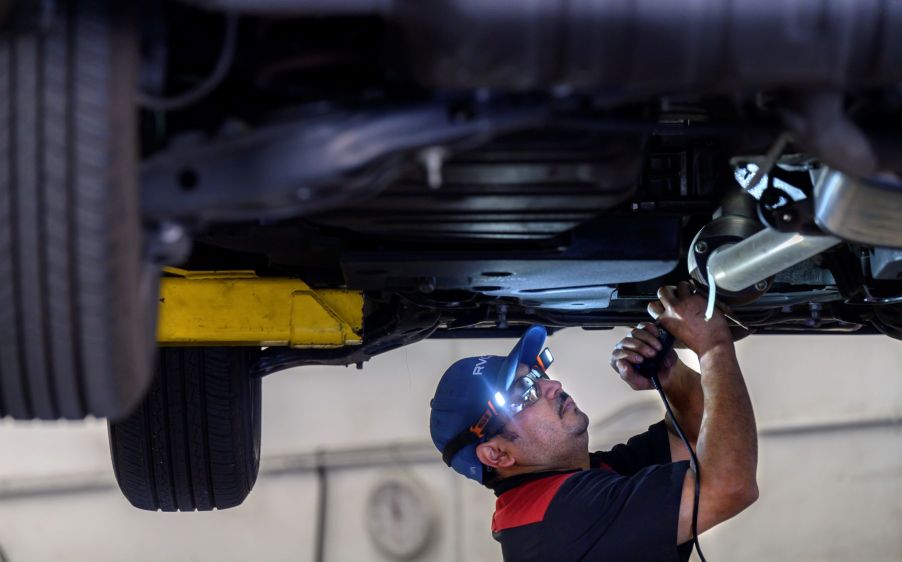
Catalytic Converter Thefts Spark Laws to Fight the Problem
Catalytic converter theft has become a nationwide problem, and it’s gotten so bad there is actual legislation being created to help combat the issue. The boldness and frequency of the car thefts make the news regularly. Cars are not safe in parking lots or even in their own driveway.
The crazy demand for catalytic converters

According to NADA, 52,000 catalytic converters were stolen across the U.S. last year. That number is particularly alarming if you contrast it to the 1,300 catalytic converters stolen in 2018.
What is behind this rash of CC thefts? Three metals are contained in a catalytic converter: platinum, palladium, and rhodium. These metals have dramatically increased in value, and thieves are eager to sell the converters for anywhere from $50 – $300 or more.
How much does it cost to replace a converter?
The irony and frustration of the situation are that while a thief may make as little as $20 or $50 for a catalytic converter or a few hundred dollars if they are lucky, the vehicle owner may have to spend as much as $3,500 to replace their catalytic converter. Additionally, that’s only if they are lucky enough not to have to replace or repair anything else.
When catalytic converter theft happens, the thief may damage other vehicle components, including the oxygen sensor. They may decide to steal the muffler or wheels while they are at it.
What is being done about catalytic converter theft?
Awareness of the problem helps aid in prevention. Still, some specific actions are being taken or proposed to hopefully bring a stop or at least a slowdown to this expensive and growing problem.
In the state of Iowa, KTVO reported the passing of Senate File 2287, which aims to reduce the theft of catalytic converters by making catalytic converter purchases traceable and requiring proof of ownership when people come to sell them. Previously, a person could bring one in and anonymously get cash for the equipment. There wasn’t any real way to trace the transaction, and no proof of ownership was required. Senate File 2287 changes that. Another feature of 2287 includes tougher penalties for thieves who steal catalytic converters.
NADA also backs the Preventing Auto Recycling Theft (PART) Act in Indiana, which aims to prevent CC and other types of auto theft by implementing tracing and enforcement practices.
How can you keep your car safe from thieves?
Dealerships are a frequent target for catalytic converter theft. However, anyone with a vehicle is at risk. It only takes minutes for a skilled thief to steal a CC, and certain cars are more at risk than others. For example, hybrid vehicles are particularly vulnerable to thieves because their higher-end CCs contain more of the valuable metals, making them more profitable to steal.
Here are some tips to prevent catalytic converter theft:
- Whenever possible, park your vehicle in a garage or other secure location, or at least in a well-lit area.
- Etch your VIN on the catalytic converter
- Install a security device such as a cage or a plate over your CC
- Increase the sensitivity of your vehicle alarm
- Find out if your auto insurance policy covers CC theft
Taking extra precautions can help you avoid being a victim of this costly crime. This is especially true if you own a vehicle that is more likely to attract thieves looking for more profitable CCs. For example, a newer hybrid vehicle. You are in the clear if you have an EV because they don’t have catalytic converters.


